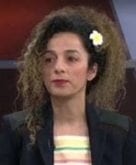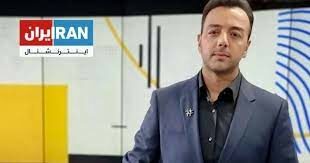RFL/RE — A German MP in the European Parliament said it is significant that for the first time Iran is not represented by its foreign minister at the Munich Security Conference but by other political figures who have a different vision for the future of Iran.
Hannah Neumann, an MP in the Strasbourg-based Parliament who has been outspoken on Iran and women’s rights, told RFE/RL in an interview on February 17 that the presence of the three activists who are representing Iran reflects the “the distance that is clearly growing between the international community and the regime that is currently holding power.”
Neumann will join U.S. Senator Robert Menendez (Democrat-New Jersey); Nazanin Boniadi, an actress and ambassador to Amnesty International; Masih Alinejad, an activist, journalist, and founder of the group White Wednesdays; and Reza Pahlavi, an activist and son of the former shah, in a panel discussion at the conference on February 18.
Neumann said it is important to recognize that the three can speak openly about Iran because they live outside the country and they have used this privilege in recent months to create awareness in the international community about what is happening in Iran, where people have been demonstrating against a lack of rights in the biggest threat to the regime since the 1979 revolution.SEE ALSO:’Radical Change Will Come’: Iranians Propose New Political System After Months Of Anti-Regime Protests
In response, authorities have launched a brutal crackdown on dissent, detaining thousands and handing down stiff sentences, including the death penalty. Hundreds of people have been killed during the unrest, which was touched off by the death in September of 22-year-old Mahsa Amini in police custody after being arrested for “improperly” wearing a head scarf.
Neumann said the three activists who will join her on the panel are prominent figures who have decided that they want to take some responsibility for where Iran is heading.
But she said it will be people inside Iran who will have the most to say about its future, and it’s clear that there is “a lot of political activism that is thinking about a different future of Iran.”
She credited the protests and the work of activists outside Iran with helping people “understand how bad the regime is how it’s terrorizing its own people, how it’s terrorizing the region.”
The international community still needs to understand what the alternative could be, and that’s why it’s encouraging to see such a diverse group “wanting to become part of describing this alternative.”
Neumann also commented on the possibility that EU countries could label the Islamic Revolutionary Guards Corps (IRGC) a terrorist organization, saying it would be important symbolically because it would mean the IRGC would not be a legitimate partner for negotiations.
The European Parliament, which last month called on the EU and its member states to designate the IRGC a terrorist organization, has blamed the IRGC for the repression of protesters and for supplying of drones to Russia’s military for use in Ukraine.
“If the demand is that they should be on the terror list, and our assessment is that they behave like terrorists, I think it is important to politically clearly state that and put them in the list,” Neumann said.
But she said it can be a very complicated process, and not all EU countries see the issue the same.
She also cast doubt on continuing the negotiations on the Iran nuclear deal, which have been stalled for months.
“It is our responsibility to do everything possible to keep [Iran] from having the nuclear bomb, but the question is, is continuing [talks on the Iran nuclear deal] in this position forever and ever and ever the way to get there? At the moment, I’m not sure if it still is,” she said.
 Shabtabnews In this dark night, I have lost my way – Arise from a corner, oh you the star of guidance.
Shabtabnews In this dark night, I have lost my way – Arise from a corner, oh you the star of guidance.



